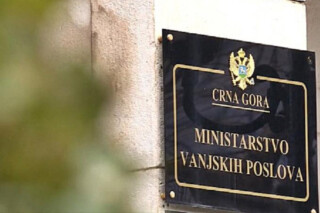According to the survey, 73.6% of the citizens who had an attitude on this matter and who would participate in the potential referendum said they would vote for joining the European Union. Perceptions and attitudes of citizens related to the process of European integration and the European Union are stable.

“By comparing the data from 2013, it can be concluded that, contrary to prevailing notion that support to integration is falling, this is not the case,” the survey showed.
Developments in the European Union and the current crisis did not remain unnoticed by the citizens, but it did not significantly affect their views and preferences.

“People have noticed certain changes in the European enlargement policy, but their views on this point have not been significantly changed”, the survey showed.
The percentage of those who believe that Montenegro will enter the European Union regardless of their personal views is about 68.9%.

“The number of those who support joining the European Union has not changed, but their structure has changed in a way that the number of those who ‘mostly support’ integration increased compared to the number of those who ‘fully support’”, it was stated.

Euroscepticism does not exist as an organised and formulated idea, but it appears in various forms
“The roots of euroscepticism can be found mainly in internal conditions rather than foreign ones such as the situation in the Union. The percentage of potential eurosceptics is stable – 15–25% of the population,” it was said in the statement.
The pace of European integration has been assessed as too fast by a considerable number of citizens and experts.
Channels of informing citizens about the integration are mostly television, newspapers, portals and increasingly the Internet.

“The increase in the Internet use and visits to Internet sites can be observed not only within young, but also within medium population,” the survey showed.
Citizens believe they are relatively well informed about the integration process.
“When they were tested on concrete issues, it turned out that this knowledge was significantly lower than perceived. However, it should be noted that there is an increase compared to 2013,” the study showed.




